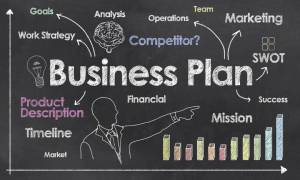Over the past couple of years, meditation has sprung from Himalayan hilltops and Japanese Zens to corporate boardrooms and halls of power, like Google, Apple, the U.S. House of Representatives, the Pentagon, and Aetna.
Meditation’s potential for reducing stress, lowering blood pressure, and improving emotional regulation is now being noted by several leaders and researches are being conducted in this regard. Mindful meditation is a practice of strengthening focus and attention on the present and has caught on as a way to bring authenticity and pure intentions to the practice of leadership.
Author of the famous book, “Emotional Intelligence”, Daniel Goleman has described mindfulness as a mode to listen to nature and yourself more deeply and direct actions not through emotional whims or reactive patterns but through clear intentions and good faith.
Can Mindfulness Create Space to Innovate?
Around seventy years ago, an Austrian psychiatrist Viktor Frankl, had just discharged from years as a prisoner at Auschwitz. He shed some light on something that is now classic teaching. In 1946 he wrote; “Between stimulus and response, there is a space, and in that space is our power to choose our response and in our response lies our growth and our freedom.”
Mindfulness is like a practice of watching your breath but noticing thoughts and sensations. It is basically a means of cultivating a kind of space and becoming aware of how the diverse stimuli, both external and internal, that we face can provoke immediate, responses in our thoughts, emotions, and actions that we don’t even consider.
Timothy Wilson, from the University of Virginia, argues that our brains are not equipped enough to handle the millions of bits of information that arrive at any given moment. For the sake of productivity, we usually make new decisions that are based upon old frames, memories, or acquaintances.
Through mindful practices, a person is able to comprehend how our minds react to thoughts, information, and sensations and also watching through the old story-lines and habitual patterns that unconsciously guide our responses. This creates space to consciously decide how to speak and act.
Just like individuals, Organisations also need this kind of space
In his book Good Strategy, Bad Strategy, Richard Rumelt, who is a leading expert on strategic planning, states that one of the most essential components of good strategy is the ability to take a step out of the internal basic story-line and alter viewpoints. He says that “An insightful re-framing of a competitive situation can form a whole new pattern of advantage and weakness. The strongest strategies arise from such game-changing insights.”
To create strategy on the basis of what Chait and other scholars have named as generative thinking, it’s not just important to identify a logical set of policies and actions in response to a problem or an opportunity, it’s also necessary to illuminate the full range of values, and external factors like assumptions situation while making decisions.
It’s vital to sit back and not only inquire whether the team has identified the correct plans and solutions but whether they have shortlisted the right questions and problems in the first place. All of this requires distance between stimulus and response.
Ways to Use Mindfulness When Planning
The all famous Steve Jobs was a regular and passionate mediator. He made use of such practice to challenge operations at Apple and to promote creative insight in planning. Similarly, Ray Dalio of Bridgewater Capital has also used mindfulness not only as a tool for enhancing productivity but also spreading situational awareness as a strategist.
But still, it’s also possible to stir mindfulness directly into planning exercises.
After testing the concept of mindful strategy on a group of middle managers and senior executives from the legal, advertising, finance, and non-profit sectors, research has managed to give us a clearer and more practical understanding of what works when it comes to amalgamate mindfulness practice into strategy retreats.
Use mindful moments: the most simple approach is to add straightforward mindfulness activities with meetings and retreats. By dividing planning exercises with a set time for those present, to merely connect with them and identify unnecessary distractions, organizers can create the conditions for intuition to increase. It is possible to involve basic practices of focus and awareness throughout a workday.
Explore alternative scenarios: It’s also possible to insert an aspect of meditation without meditating at all. Exercises like Scenario planning introduce decision-makers to various, plausible alternate possibilities that challenge assumptions and mindsets.
Corporations and governments have used such practices and have achieved considerable success for decades. Just like meditation, the practice of unbiased assessing different futures is a practical way of emphasizing on old un-examined thought patterns and making space for new ideas.
Visualize positive outcomes: positivity is part and a parcel of focused attention. Negative emotions narrow our focus while optimism widens our attention and response to the new and unexpected. Leaders can benefit from imagining the worst during strategic sessions. This can be just like posing a variant of the question.
Mindfulness practices like have succeeded to help leaders along with their organizations to locate which ideas and techniques are important and which assumptions restrict their growth. They’re not only useful for enlightenment but for making sense of a different world as well.
The Ultimate Guide to Mindfulness Meditation at Work, Because It Matters














